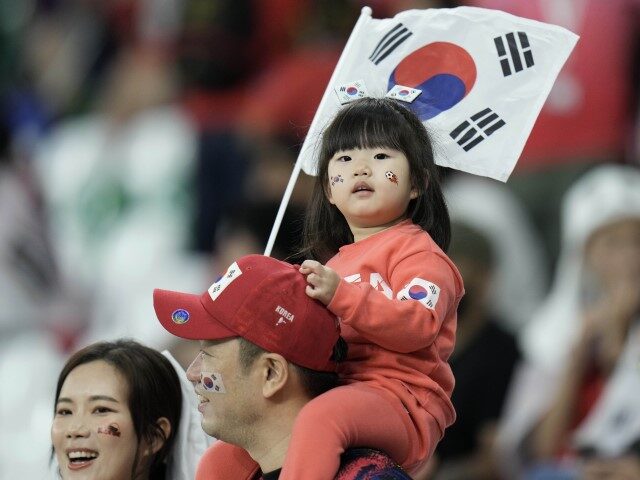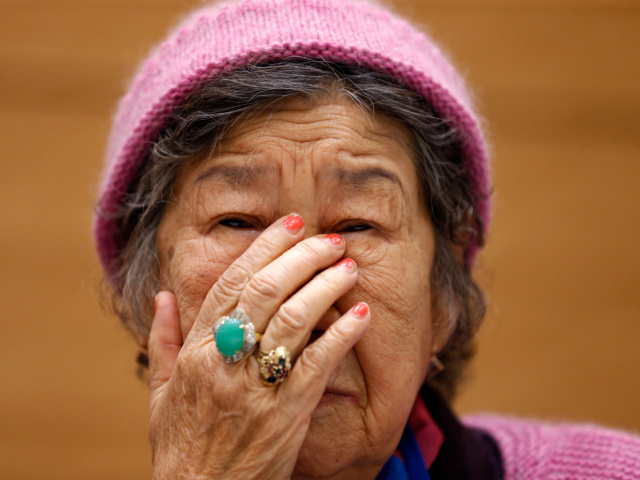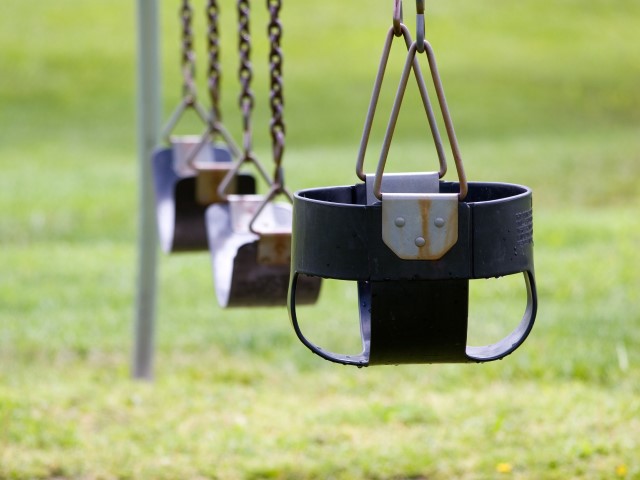Conservative South Korean President Yoon Suk-yeol ordered his officials to begin a “complete review” of all federal policies to encourage Koreans to have children on Friday, following his announcement of the future establishment of a “low birthrate response planning ministry.”
Yoon announced the planned creation of a new ministry to address the nation’s birth rate collapse on May 9 during an extended press conference filled with newsworthy moments, including an apology offered for a corruption scandal involving First Lady Kim Keon-hee. The scandal, in which Kim was reportedly caught accepting a $2,200 Dior handbag as an illicit gift, peaked right before South Korea’s midterm elections in April, in which the left-wing Democratic Party crushed Yoon’s People Power Party (PPP).
The remarks Friday were made during what the Yonhap news agency described as a “financial strategy meeting” to reorganize federal government spending in Seoul. Yoon tasked his officials with studying the outrageous amount of money Seoul has spent on attempting to increase South Korea’s birth rate – over $273 billion since 2006 – and the relative success rates of individual programs.
There is no significant evidence that the billions have made a difference. South Korea has maintained the world’s lowest birth rate for a decade. As of 2023, the national fertility rate stood at 0.72 children per woman of childbearing age. Some parts of the country, such as Seoul, have logged birth rates as low as 0.55 children per woman. For comparison, “replacement fertility” – the rate at which women must have children in a country to ensure the population stays stable – is 2.1 children per woman of childbearing age.
Combined with the nation’s high life expectancy, South Korea is facing a situation in which its senior citizen population is booming, but few couples are having children, potentially plunging the country into an economic crisis when there are not enough workers to maintain social safety net programs for the elderly. Some estimates suggest South Korea’s population of participants in the workforce could fall by as much as 10 million people by 2044.
Finance Minister Choi Sang-mok lamented in December that the birth rate collapse may not be reversible, asserting, “A ship like the Titanic has no choice but to crash by the time it discovers a reef.”
The assessment of government expenditures announced on Friday followed Yoon’s call for the creation of a new ministry to address the birth rate on May 9.
“We will fully mobilize all capabilities of the state to overcome the low birthrate, which can be considered a national emergency,” Yoon said at the time. Yoon announced he would create a “low birthrate response planning ministry” that would “establish policies encompassing education, labor and welfare, and make them a national agenda, going beyond a simple welfare policy.”
“In order to overcome the low birth rate, which can be considered a national emergency, we will fully mobilise all of the state’s capabilities,” Yoon promised. “We will be creating a low-birth planning department in order to establish a more aggressive and powerful control tower.”
The next week, Yoon announced that his office would create a new position in the presidential secretariat for fertility issues.
“This plan would elevate the Presidential Committee on Aging Society and Population Policy, which has been overseeing the issue, but faced limited authority to carry out its mission,” the Korea JoongAng Daily explained on May 13. Currently, addressing the nation’s birth rate is divided between the senior presidential secretary for social affairs, an office tasked with several other major family and economic issues, and the aforementioned “Presidential Committee on Aging Society and Population Policy” created in 2006.
JoongAng noted that – in a politically fraught environment where the midterm elections saw bitter rivalries, accusations of criminal activity, and one major assassination attempt – convincing Korean couples to have more children is a rare “bipartisan” issue. The National Assembly, now controlled by the opposition Democrats, would have to play a role in greenlighting the expansion of birth rate programs, and the Democrats have expressed a willingness to cooperate with Yoon.
“We agree with the plan to create a ministry dedicated to the low birthrate issue,” Park Chan-dae, who leads the Democrats on the Assembly floor, reportedly said on Thursday. “We will proactively review whether there is anything we can cooperate with as the rivaling party, and whether there is anything we can do together with the government and the People Power Party (PPP).”
Polling and other investigations suggest several major reasons for the low birth rate, including economic concerns, particularly expressed by women who fear they will lose their careers if they become mothers, and an actively hostile social environment for children. “No-kid zones” – businesses and public spaces that explicitly ban children from being present – have proliferated in recent years, even restricting children from going to libraries and other traditionally kid-friendly spaces.
Both the federal government and local-level governments in South Korea have done little to address the social hostility, choosing to instead prioritize financial incentives. In January, the national government announced it would pay parents an up-front $1,500 bonus for every new child born. In April, Seoul city officials began considering a much larger bonus of about $72,500, or 100 million won, for the birth of a baby, emulating a policy implemented by the private corporation Booyoung Group.
Other cities have taken different initiatives. In Incheon, the government implemented a massive package of subsidies per child distributed throughout the child’s life, through age 18. In Seongnam, officials began targeting the problem at the root, hosting mass blind dating events in an attempt to boost marriage rates.



COMMENTS
Please let us know if you're having issues with commenting.